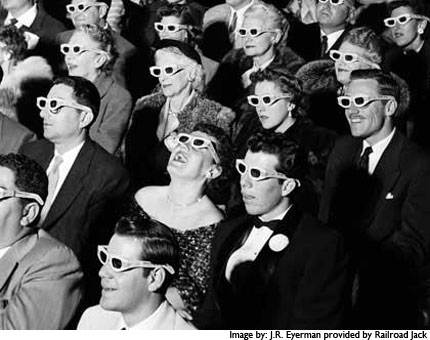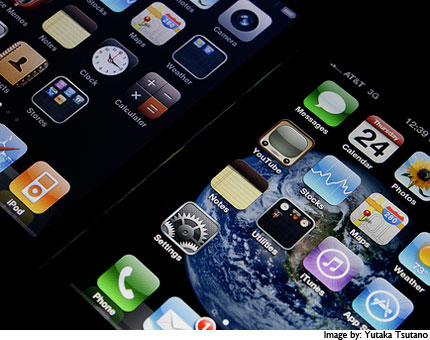Introduction
Terms and their definitions are inseparable from the context in which they were developed and are used. This context includes varying social, historical, and technological influences. Terms are often reflective of current practice, favor, and shifts in values.
Our understandings of terms and our choice of what terms to use, when, will necessarily change as the cultural, political, educational, technological, social, and historical context changes. Keeping in mind this inevitability should keep our expectations of terms in check and our scholarly ambitions modest. Ultimately, the ideas put forth in this section may remind us to feel more comfortable with the idea that what we know and believe today are certainly different than what we knew and believed yesterday and may not be at all what we know or will believe tomorrow.
The excerpts included in this section illustrate just how much the existing context or the needs of a newly arisen context influence the development of terms and our understandings of them.
Gunther Kress suggests that new media is a term used currently (and not in previous generations) because of the way that medium has evolved over the past century. In a later clip, Kress traces how the political context informs the relevance and usefulness of terms we use to address our needs at a particular time in a particular culture.
Jonathan Alexander discusses his desire to work with students to understand texts as cultural products that reflect changes in what it means to be literate.
Anne Wysocki discusses the process she took in defining new media for a new audience of technical communicators. She also suggests that multimodal can be better understood and easier to engage with if we understand it as a product of a new media context.
Scott DeWitt discusses the origin of the naming of the Digital Media Project at Ohio State University, including the factors that had to be considered when deciding who the program would serve and what it would represent.
Cheryl Ball discusses the evolution of her understanding of new media, how she’s been able to bring divergent understandings of new media together, and how she now sees new media not just as a thing, but as a moment in time that can inform our understanding of the role of digital texts in writing studies.
Jason Palmeri talks about the new being a relative term in which something feels new, and therefore is new, whether the actual technology itself is new to the culture. He considers whether the idea of the digital will ultimately wane because it is so ubiquitous.
Terms and their definitions are inseparable from the context in which they were developed and are used. This context includes varying social, historical, and technological influences. Terms are often reflective of current practice, favor, and shifts in values.
Our understandings of terms and our choice of what terms to use, when, will necessarily change as the cultural, political, educational, technological, social, and historical context changes. Keeping in mind this inevitability should keep our expectations of terms in check and our scholarly ambitions modest. Ultimately, the ideas put forth in this section may remind us to feel more comfortable with the idea that what we know and believe today are certainly different than what we knew and believed yesterday and may not be at all what we know or will believe tomorrow.
The excerpts included in this section illustrate just how much the existing context or the needs of a newly arisen context influence the development of terms and our understandings of them.
Gunther Kress suggests that new media is a term used currently (and not in previous generations) because of the way that medium has evolved over the past century. In a later clip, Kress traces how the political context informs the relevance and usefulness of terms we use to address our needs at a particular time in a particular culture.
Jonathan Alexander discusses his desire to work with students to understand texts as cultural products that reflect changes in what it means to be literate.
Anne Wysocki discusses the process she took in defining new media for a new audience of technical communicators. She also suggests that multimodal can be better understood and easier to engage with if we understand it as a product of a new media context.
Scott DeWitt discusses the origin of the naming of the Digital Media Project at Ohio State University, including the factors that had to be considered when deciding who the program would serve and what it would represent.
Cheryl Ball discusses the evolution of her understanding of new media, how she’s been able to bring divergent understandings of new media together, and how she now sees new media not just as a thing, but as a moment in time that can inform our understanding of the role of digital texts in writing studies.
Jason Palmeri talks about the new being a relative term in which something feels new, and therefore is new, whether the actual technology itself is new to the culture. He considers whether the idea of the digital will ultimately wane because it is so ubiquitous.

 The mediated world (2010)
The mediated world (2010) Understanding texts (2007)
Understanding texts (2007) New context for new media (2010)
New context for new media (2010) As a result of new media (2010)
As a result of new media (2010) Origin of the DMP (2007)
Origin of the DMP (2007) The politics of terms (2010)
The politics of terms (2010) Bringing binaries together (2007)
Bringing binaries together (2007) A moment in time (2007)
A moment in time (2007) When things feel new (2008)
When things feel new (2008) Future of the 'digital' (2008)
Future of the 'digital' (2008)